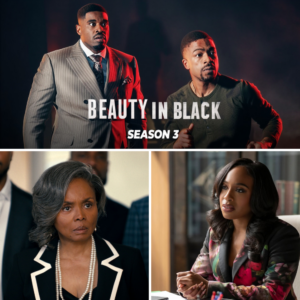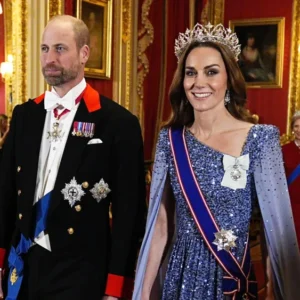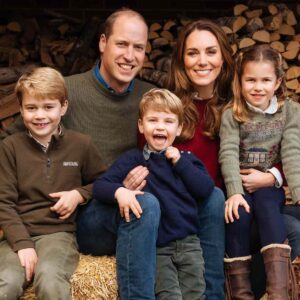Elon Musk, the enigmatic entrepreneur whose net worth has soared beyond $250 billion in 2025, making him the wealthiest individual on the planet, is far more than a symbol of financial success. As the CEO of Tesla, SpaceX, and xAI, Musk’s influence spans electric vehicles, space exploration, and artificial intelligence. Yet, beneath the headlines of record-breaking valuations and ambitious ventures lies a man deeply contemplative about legacy—not in terms of dollars and cents, but the world his children will inherit. With at least 13 known children from multiple relationships, Musk frequently poses a question that many billionaires sidestep: What kind of world are we leaving for the next generation? This inquiry drives his actions, from advocating for population growth to pushing humanity toward a multiplanetary existence, all while rejecting the notion of automatic inheritance for his offspring.
Musk’s journey to becoming the richest man began with humble roots in South Africa, where he was born in 1971. After immigrating to the United States, he co-founded PayPal, which sold for $1.5 billion in 2002, providing the seed capital for his future empires. Tesla revolutionized the automotive industry with sustainable energy solutions, while SpaceX disrupted aerospace by achieving reusable rockets and contracts with NASA. His wealth exploded with Tesla’s stock surge during the electric vehicle boom and SpaceX’s valuation reaching over $200 billion. By October 2025, Musk’s fortune eclipses that of rivals like Jeff Bezos and Bernard Arnault, fueled by innovations in neural interfaces via Neuralink and social media through his ownership of X (formerly Twitter). But Musk views wealth not as an end but a tool. “Money doesn’t make you happy,” he has said in interviews, emphasizing that true fulfillment comes from solving humanity’s grand challenges.
Central to Musk’s worldview is his family. He has fathered children with several partners, including Justine Wilson (five children, one deceased in infancy), Talulah Riley (no children together), Grimes (three children), and Neuralink executive Shivon Zilis (three children via surrogacy). Recent reports reveal Musk has acquired a sprawling compound in Austin, Texas, valued at around $35 million, to house his extended family. This 14,400-square-foot estate, comprising multiple properties, allows his children and their mothers to live in close proximity, fostering a communal environment. Musk describes it as a way to unite his family under one roof, navigating the complexities of co-parenting across relationships. This setup reflects his pronatalist stance: he believes in large families as a bulwark against what he calls “population collapse.” In public statements, Musk warns that declining birth rates—below replacement levels in most developed nations—threaten civilization’s survival. “If birth rates continue to plummet, human civilization will end,” he posted on X in 2024, echoing concerns shared by demographers about aging populations and shrinking workforces.
Musk’s ponderings on the future his children will face extend beyond demographics. He envisions a world transformed by technology, where AI and robotics render traditional jobs obsolete. “AI and robots will replace all jobs. Working will be optional, like growing your own vegetables,” he stated in a 2025 post. This prediction aligns with his work at xAI, aiming to develop artificial general intelligence that benefits humanity. Yet, Musk cautions against unchecked AI, advocating for safeguards to prevent dystopian scenarios. For his kids, this means inheriting a society of “universal high income,” where abundance allows focus on creativity and exploration rather than survival. However, he tempers optimism with realism: without more children, societies risk extinction. Musk’s own family serves as an example; he encourages others to have at least three kids, arguing that “kids are awesome” and nothing brings greater happiness. His actions, like carrying his son X Æ A-12 on his shoulders during a speech at Tesla’s Giga Berlin factory, humanize the billionaire, showing a softer side amid his relentless drive.
On inheritance, Musk diverges from traditional billionaire paths. He has publicly stated that his children won’t automatically receive shares in his companies. “Elon Musk’s 10 children won’t automatically inherit shares of his companies,” a 2023 report noted, with Musk emphasizing a merit-based approach. He believes handing over vast wealth without earning it could stifle ambition, drawing parallels to other tycoons like Bill Gates and Warren Buffett, who plan to donate most of their fortunes to philanthropy. Musk’s empire—Tesla, SpaceX, and others—will likely go to successors who demonstrate capability, not bloodline alone. This philosophy stems from his belief that “giant inheritances can cripple a child’s drive to achieve.” Instead, he focuses on equipping his children with skills; anecdotes reveal his kids coding at age 12, better than some professionals. Musk’s wealth, he insists, is for advancing humanity, not creating dynasties. Critics, however, point to contradictions: his family compound and private jets suggest privileges his children already enjoy.
The question Musk poses—”What world will our children inherit?”—resonates globally, especially amid criticisms from peers. Bill Gates accused Musk in 2025 of “killing the world’s poorest children” by supporting cuts to U.S. foreign aid, which could exacerbate hunger and disease in developing nations. Musk, undeterred, counters that overpopulation myths distract from real issues like underpopulation in wealthy countries. His vision for the future emphasizes space colonization as a hedge against earthly perils. “A future where we are out there among the planets and the stars is so inspiring!” he enthused in a 2025 statement. SpaceX’s Starship program aims to make humanity multiplanetary, ensuring survival if Earth faces catastrophe. For Musk’s children, this means potentially growing up in an era of Mars settlements and lunar bases, where resources from asteroids fuel endless growth.
This interstellar ambition ties into Musk’s broader concerns about civilization’s trajectory. He warns of ideologies that fail to reproduce, likening them to “vampire cults” that infect young minds through education. “In order to survive, an ideology that fails to reproduce itself must necessarily infect the minds of the children of those who do reproduce,” he posted in August 2025. This critique targets what he sees as anti-natalist trends in progressive thought, urging a return to family values. Musk’s pronatalism isn’t without controversy; some view it as elitist, given his resources allow for large families others can’t afford. Yet, he argues it’s essential: “Having kids is a vote for the future.” In Europe, where birth rates hover around 1.5 children per woman, Musk predicts “mass extinction of entire nations” without change.
Musk’s reflections also touch on personal vulnerabilities. Despite his wealth, he has faced family tragedies, including the loss of his firstborn son Nevada in 2002 to sudden infant death syndrome. This event profoundly shaped him, fueling his drive to secure a better future. His relationships have been turbulent—divorces from Wilson and Riley, public spats with Grimes—but he remains committed to fatherhood. Recent claims, like author Ashley St. Clair’s tongue-in-cheek assertion of having Musk’s child, highlight the media frenzy around his personal life. Musk dismisses much of it, focusing on long-term impact.
As the richest man, Musk could retreat into luxury, but he chooses activism. His X posts rally against cynicism: “Fuck cynicism. Humans are awesome. There is no problem we can’t solve.” For his children, this means inheriting tools for progress—AI for abundance, space tech for expansion, sustainable energy for a livable planet. Yet, he stresses personal responsibility: optimism is tested by choosing to have kids. “The acid test for optimism about the future is whether someone chooses to have children,” he noted in 2024.
In pondering the world his children will face, Musk challenges all parents to think bigger. Will it be one of scarcity and decline, or abundance and stars? His answer: bet on humanity by building families and innovations. As civilizations grapple with demographics, climate, and tech, Musk’s question lingers: What world will we leave? For the man who has everything, the true inheritance is a thriving future, earned not given.





